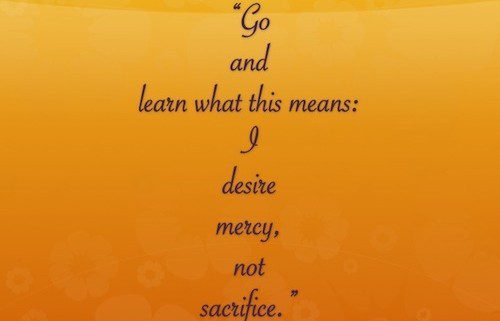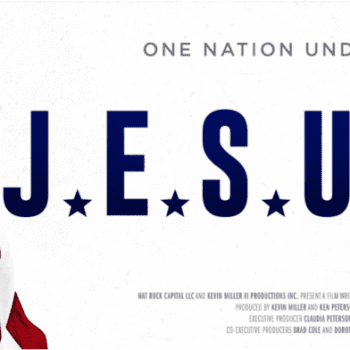 Note: Many thanks to Mark Sandlin, author of “The God Article,” for starting the #IwasKimDavis hashtag, which helps to curb our tendency toward scapegoating and instead embrace empathy. This is my #IwasKimDavis story.
Note: Many thanks to Mark Sandlin, author of “The God Article,” for starting the #IwasKimDavis hashtag, which helps to curb our tendency toward scapegoating and instead embrace empathy. This is my #IwasKimDavis story.
“If I have to meet more homophobic people, I hope they’re all like you.”
Sixteen years later, these words still sting.
I was a freshman in college. I had converted to Islam two years previous, which is another story, and I was struggling to maintain my fledgling Muslim identity at a college with very few Muslim students. My conversion to Islam and later reaffirmation of Christianity is not particularly relevant to this story, except to say that I struggled to find a way to relate to and worship God that offended neither my heart nor my mind. Bewilderment about the Trinity and horror at the crucifixion as I misunderstood it at the time were some of the reasons why I embraced a faith with the same roots as the Christianity I had been raised with, without the same paradoxes. What’s important to understand, for the purposes of this story, is that I was struggling to be faithful to the God I was trying to understand. I believed this God to be Most Gracious, Most Merciful. But I also believed that this God had designed men and women to complement each other, and that this God had decreed homosexual behavior sinful.
It was, honestly, something that bothered me about Islam. But it wasn’t my central theological struggle, and Islam’s doctrine of Tawheed, the oneness of God, was so much clearer to me than the Trinity that I embraced it, and struggled to be faithful to the One God of all. I was striving to work through my doubts, trusting that God would eventually make things more clear to me. I struggled to live with the disconnect between my heart, which wanted to be an open ally of the LGBTQ community, and my religion, which (as far as I knew, before recognizing Islam’s more complex and multi-vocal history with homosexuality), told me that homosexuality was at best a pathology and at worst willful disobedience. I was new to Islam. I had much to learn. I wasn’t willing to disconnect from it or from the sense of relief it had given to my theological doubts over an issue that wasn’t even central to my life.
But the issue was about to become a lot more significant to me.
I had been somewhat taken aback when I learned that my new friend was a lesbian, because we had been alone together. I’m embarrassed now by how I might have jumped or flinched at the news, but it wasn’t because I felt any animosity toward her. It had more to do with Islamic purity codes, as I understood them, and how I would have to readjust my interactions with her to fit them. She had watched me pray with my covered posterior in the air, after all, and women stand behind or separate from men in the masjid to avoid that very situation! I recalled the hadith “When an unmarried man and woman are alone together, Satan is always a third companion.” We would have to keep the doors open when we visited each others’ dorms, I told her. I tried to tell her about how I was trying to keep up with my faith and how that meant I would try to interact with her as I would with a man, keeping my modesty.
I was almost embarrassed, and somewhat apologetic, as bumbled through an explanation of why I felt a need to change the way we interacted together. I have no idea what I said. But I remember my friend’s kindness as she listened, and her eye contact when I shyly looked back up at her, and she said the words to me that I have never forgotten:
“If I have to meet more homophobic people, I hope they’re all like you.”
Ouch!
I tried to explain that I wasn’t homophobic, or that I really didn’t mean to be. I wanted to acknowledge that I understood and deeply regretted if what I had told her was hurtful, and that Islam’s position on homosexuality was not something I loved about my new faith, but it was something I was trying to understand. I told her I knew it wasn’t my place to judge what was homophobic since I wasn’t the one hurt by it. I said that I wanted her to know that in my heart and mind, I thought she was a wonderful person, and that, if anything, I was a little troubled that her sexuality didn’t bother me, and troubled that I was troubled by that! She understood. And then we probably changed the subject to our mutual love of Disney, or a class we shared, or whatever. She quickly became my best friend. And as an agnostic, she appreciated the beauty that she found in my faith and my faith journey, and she herself became a part of it, as important relationships always become a part of one’s faith.
I eventually let the modesty codes of Islam, insofar as they separated me from my friend, fall away. I believed in modest dress and humility, and that hasn’t changed, but I didn’t want to keep my friend at an emotional or spiritual distance, so I didn’t.
At the time, I sometimes felt as if I was putting my friendship above God, but I was also able to explore my understanding and relationship with God through that friendship. My friend’s thoughts and questions sparked my own and expanded my heart and mind. Still, I had occasional pangs of doubt that I was doing wrong by God. What I didn’t realize then was that my doubts and struggles, and eventually my putting my friendship not above my faith, but above certain interpretations of religious tradition, was a path to a deeper understanding and a deeper love for the God who is Love and wants humans to relate to one-another in love.
Even after reaffirming Christianity because of a deeper understanding of the revelation of God’s love in the incarnation and crucifixion (while remaining ever grateful to Islam and still desiring to keep my love and respect for it), it took a while for me to come to the understanding of homosexuality that I have today. My understanding of scripture, my hermeneutical lens, is still coming into focus, but it is much more clear now than when I was struggling in the midst of fears.
My fear wasn’t really homophobia. And I didn’t want to admit that it was a fear of God, because I was trying, and sometimes succeeding, in believing that God is Love, though I did fear disappointing God. What I really suffered from is what I coin “Fearful Hermeneutic Syndrome,” or FHS, and I empathize with anyone who struggles with it or holds it as yet undiagnosed.
I was frightened of disappointing a God whom I believed would be disappointed by a violation of purity codes. I believed that this God was merciful and loving, and that this God would even forgive homosexuality, but not approve of it. But the more I came to know my friend, the more I could not understand God being disappointed in her for something that — not only could not be changed, but had no need to be changed. If anything, I realized that if I considered her potential to fall in love and build a family was at all sinful, that would hinder my compassion toward her, and that was a sin. Loving was not a sin. I came to understand that, and it opened my heart to a deeper understanding of God.
I now see sexual orientation and gender identity through the lens of mercy, not sacrifice. The words of Hosea, repeated twice by Jesus, “I desire mercy, not sacrifice,” does not just contradict certain elements of the Bible in which God clearly does demand sacrifice. It contradicts an entire understanding of scripture, an understanding that distinguishes in from out, clean from unclean. Coming to the understanding that scripture is multi-vocal, that it speaks of human projection of violence onto God as well as God’s revelation to humanity in the form of Jesus, has made all the difference in the world to me. Every word of scripture is important, but some of it reveals the depths of human sin, including the violence that we were deluded into thinking was from God. Jesus definitively shows that God’s love encompasses everyone. There is no way to hold mercy and sacrifice “in tension” within God. Perfect mercy casts out sacrificial systems that exclude and marginalize, just as perfect love casts out fear.
Among the marginalized in today’s world are those who belong to the LGBTQ community. Some use scripture to justify this marginalization. I really believe they are trying to obey God as they understand God. Yet Jesus embraced those whom the scriptures of his own time marginalized, in order to heal us of our delusion that God excludes people the way we do.
I believe that Kim Davis, the Kentucky clerk recently jailed for refusing to issue marriage licenses after the national legalization of gay marriage, is trying to follow her religious convictions. She does not have the legal right to deny marriage licenses to same-sex couples, and I feel compassion for those whose lives she has made more difficult through her noncompliance with the law. I lament the pain she has caused them, pain that may be compounded by other voices that marginalize them. But I also feel compassion for Kim Davis, because I have been her. I believe she is suffering from Fearful Hermeneutic Syndrome, and it is not an ailment to be taken lightly.
Kim Davis may or may not feel assured of God’s love for her. I sincerely hope she does. But I also know that we will never know the extent of this love until we come to grasp the fact that God’s love embraces everyone, and that God desires abundant life for everyone, including members of the LGBTQ community. This abundant life often includes a relationship with an intimate partner, which is a human reflection of the depths of God’s love, and God’s love can be equally revealed in a partner of the same sex as in a partner of the opposite sex. I believe this, partly because theologians such as James Alison have successfully debunked the “clobber texts” for me. But more importantly, I believe this because I know that God is Love, that love is relationship (hence the Trinity that so baffled me in my younger days), and that being made in the image of God is to be made for love. Nothing reflects God’s image more beautifully than mutually self-giving love between two people. Knowing this, I understand Kim Davis’s struggle for the sanctity of marriage. Marriage is worth struggling for. But the LGBTQ community has known this all along, which is why they now celebrate their legal right to marry.
I pray that Kim Davis eventually recognizes that right, not just according to the law, but according to the God who is Love, who demands mercy, not sacrifice. Because I truly believe that if she stops trying to prevent others from embracing one another in love, she will find herself embraced in a divine love that is so much greater than she now imagines it to be.
For more on God’s all-embracing love as it relates to this issue, see Adam Ericksen’s article, “‘God’s Authority’: Same Sex Marriage and a Kentucky County Clerk.”











